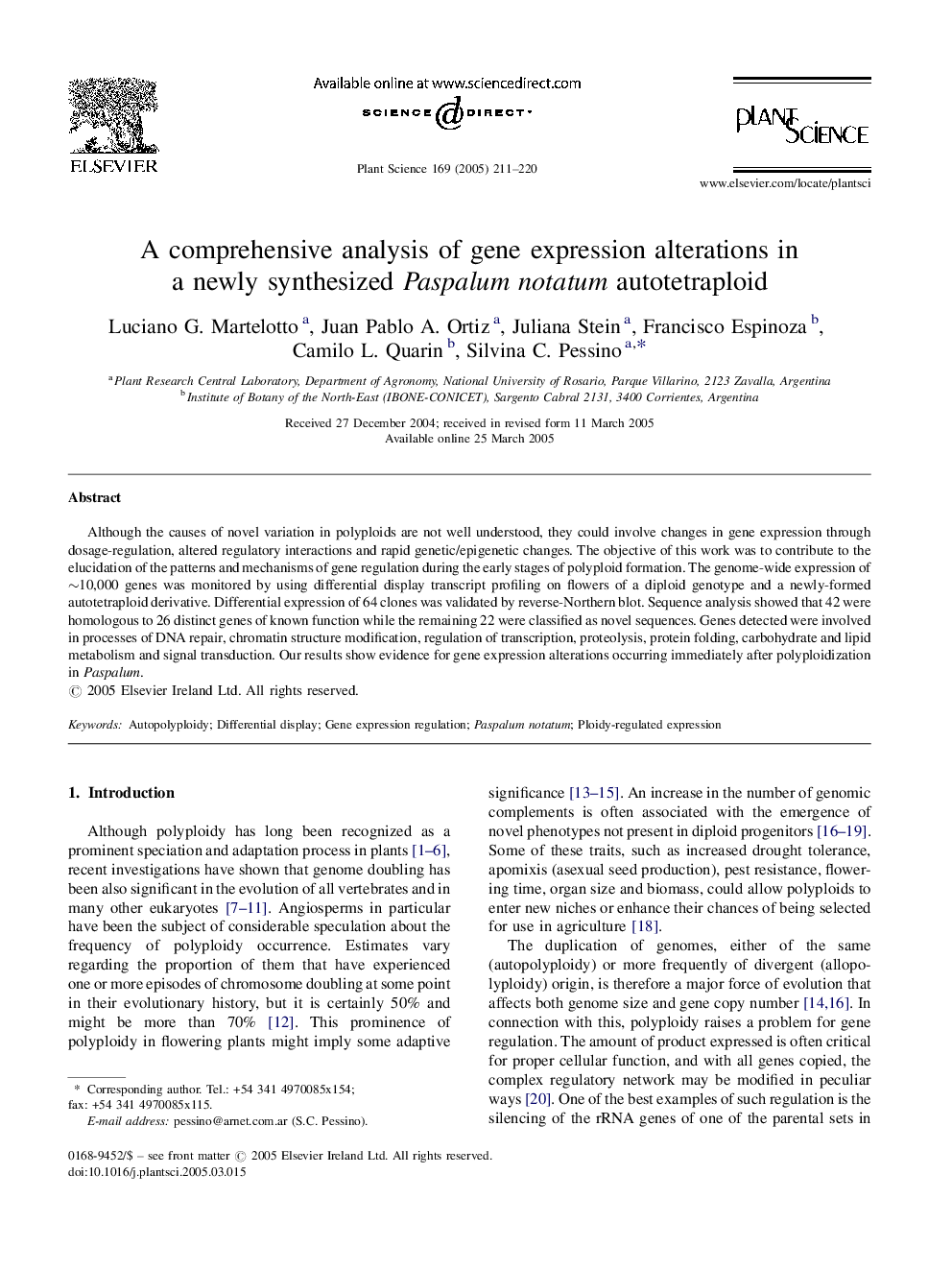| Article ID | Journal | Published Year | Pages | File Type |
|---|---|---|---|---|
| 10842000 | Plant Science | 2005 | 10 Pages |
Abstract
Although the causes of novel variation in polyploids are not well understood, they could involve changes in gene expression through dosage-regulation, altered regulatory interactions and rapid genetic/epigenetic changes. The objective of this work was to contribute to the elucidation of the patterns and mechanisms of gene regulation during the early stages of polyploid formation. The genome-wide expression of â¼10,000 genes was monitored by using differential display transcript profiling on flowers of a diploid genotype and a newly-formed autotetraploid derivative. Differential expression of 64 clones was validated by reverse-Northern blot. Sequence analysis showed that 42 were homologous to 26 distinct genes of known function while the remaining 22 were classified as novel sequences. Genes detected were involved in processes of DNA repair, chromatin structure modification, regulation of transcription, proteolysis, protein folding, carbohydrate and lipid metabolism and signal transduction. Our results show evidence for gene expression alterations occurring immediately after polyploidization in Paspalum.
Related Topics
Life Sciences
Agricultural and Biological Sciences
Plant Science
Authors
Luciano G. Martelotto, Juan Pablo A. Ortiz, Juliana Stein, Francisco Espinoza, Camilo L. Quarin, Silvina C. Pessino,
